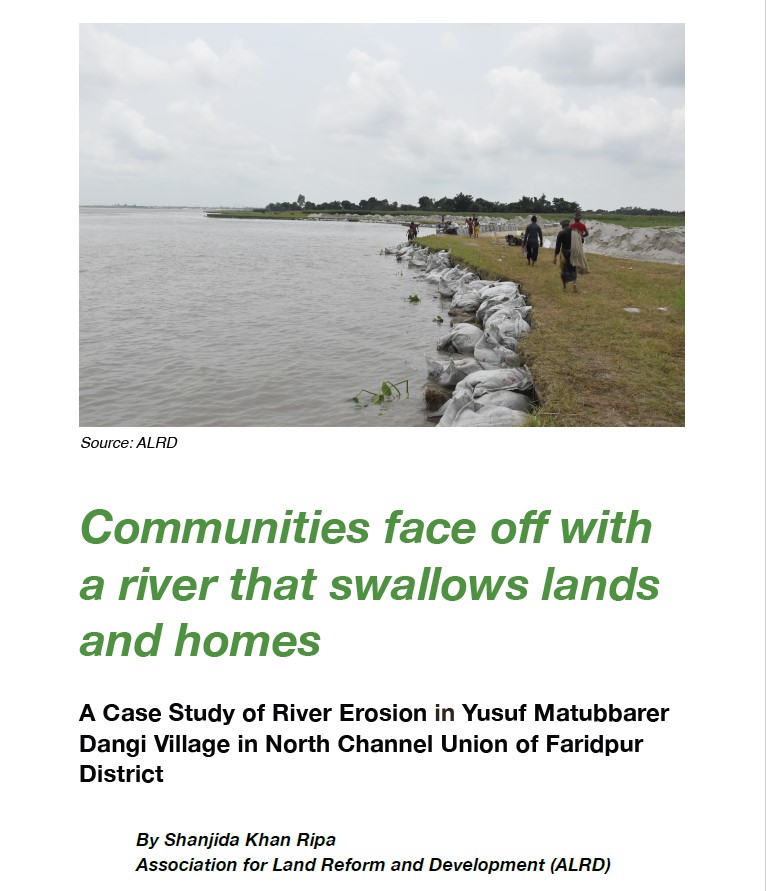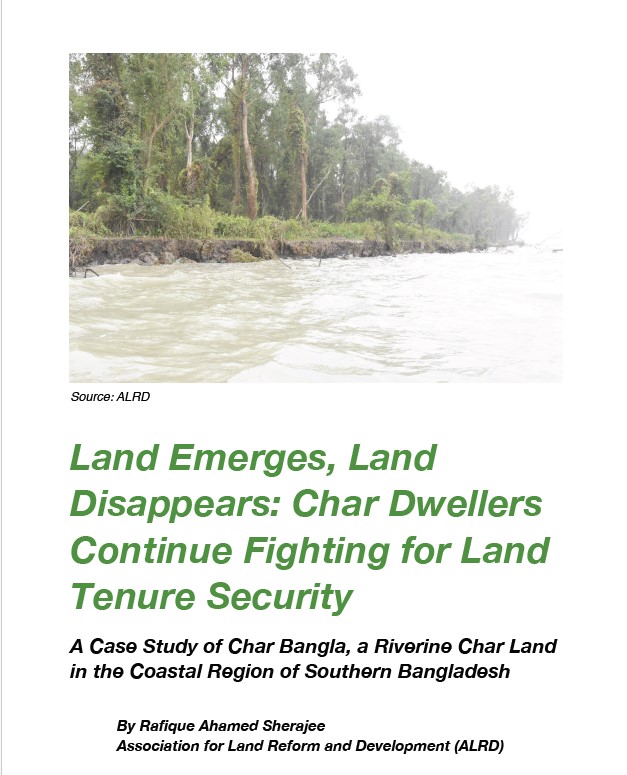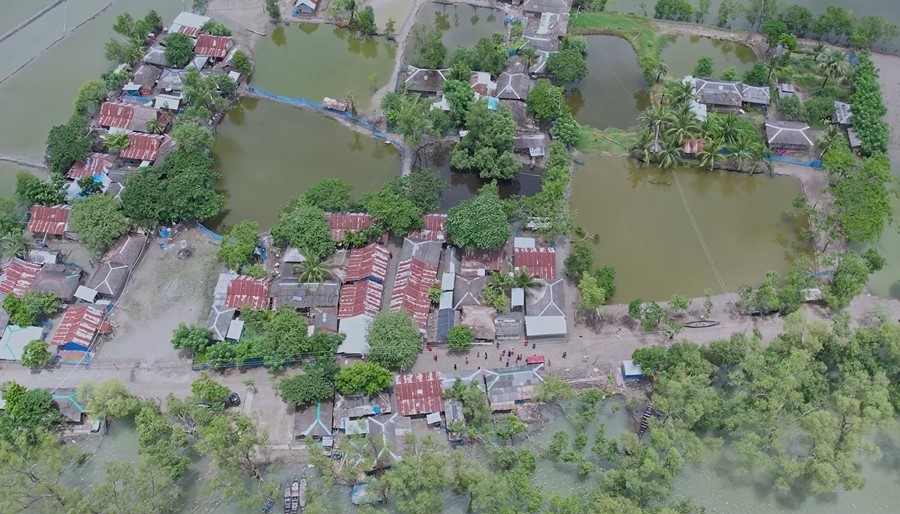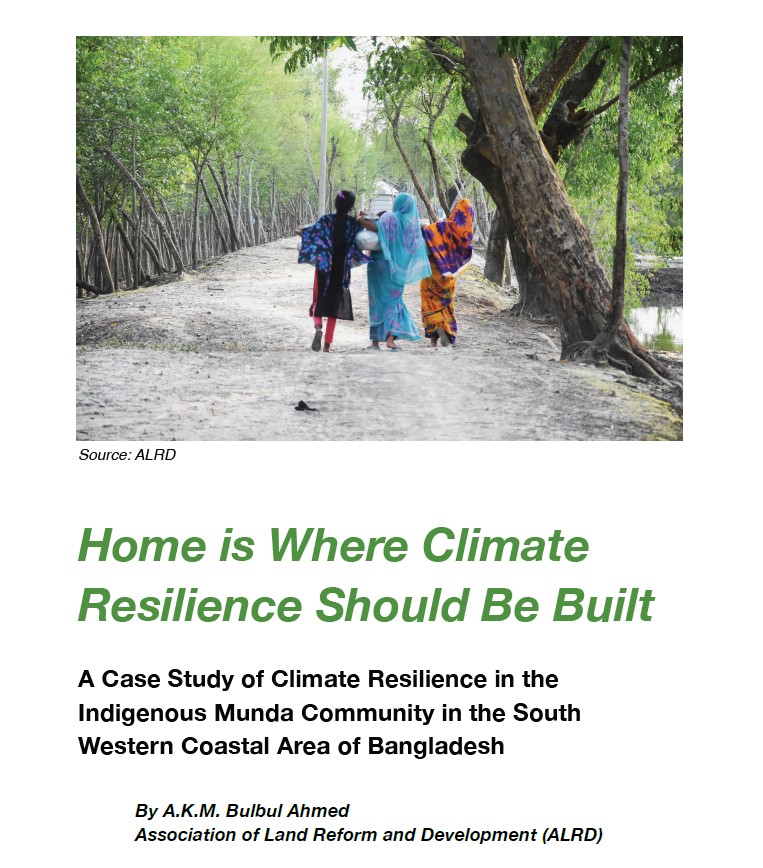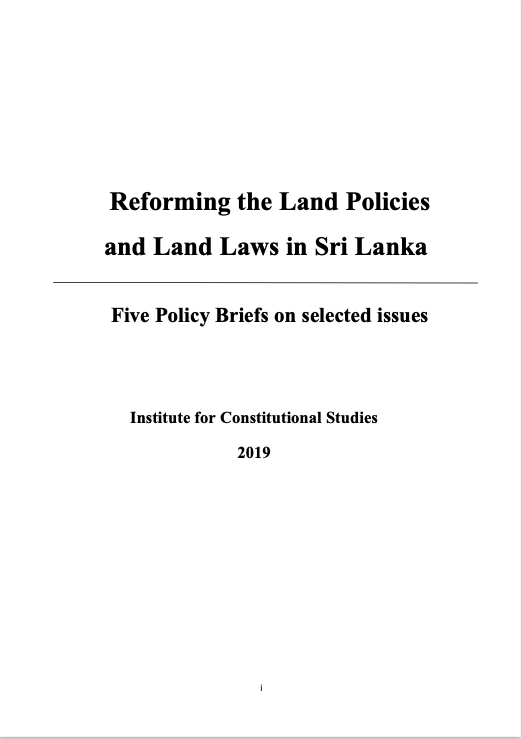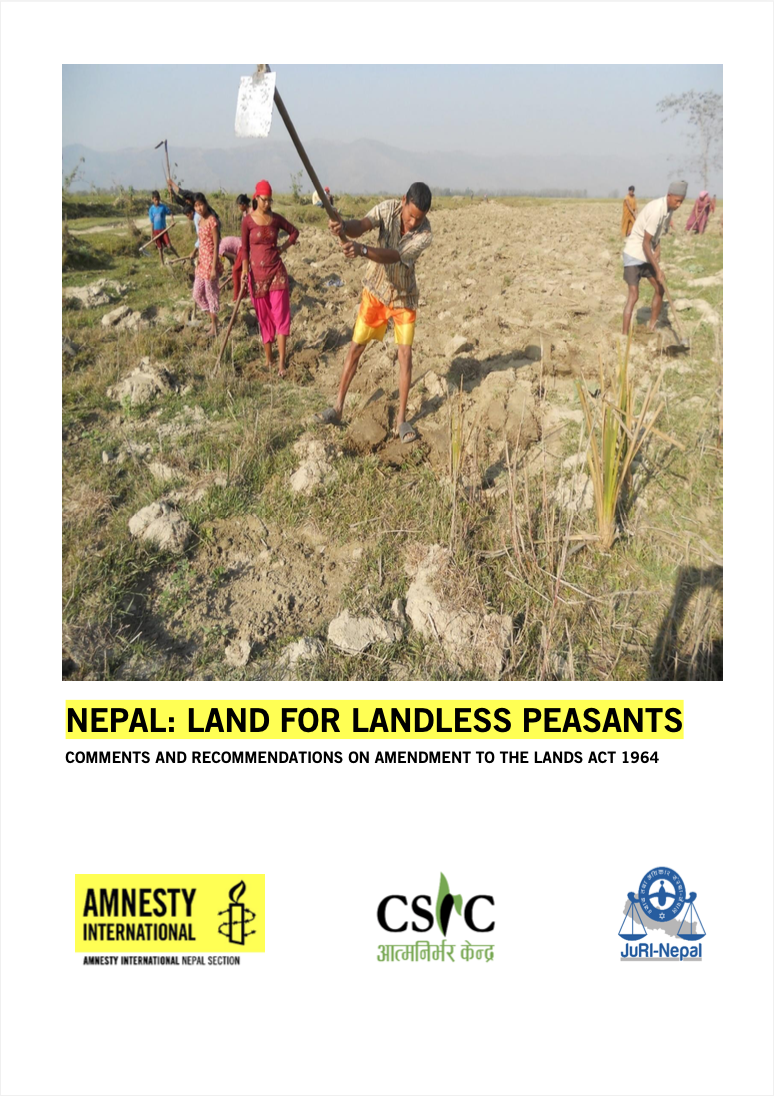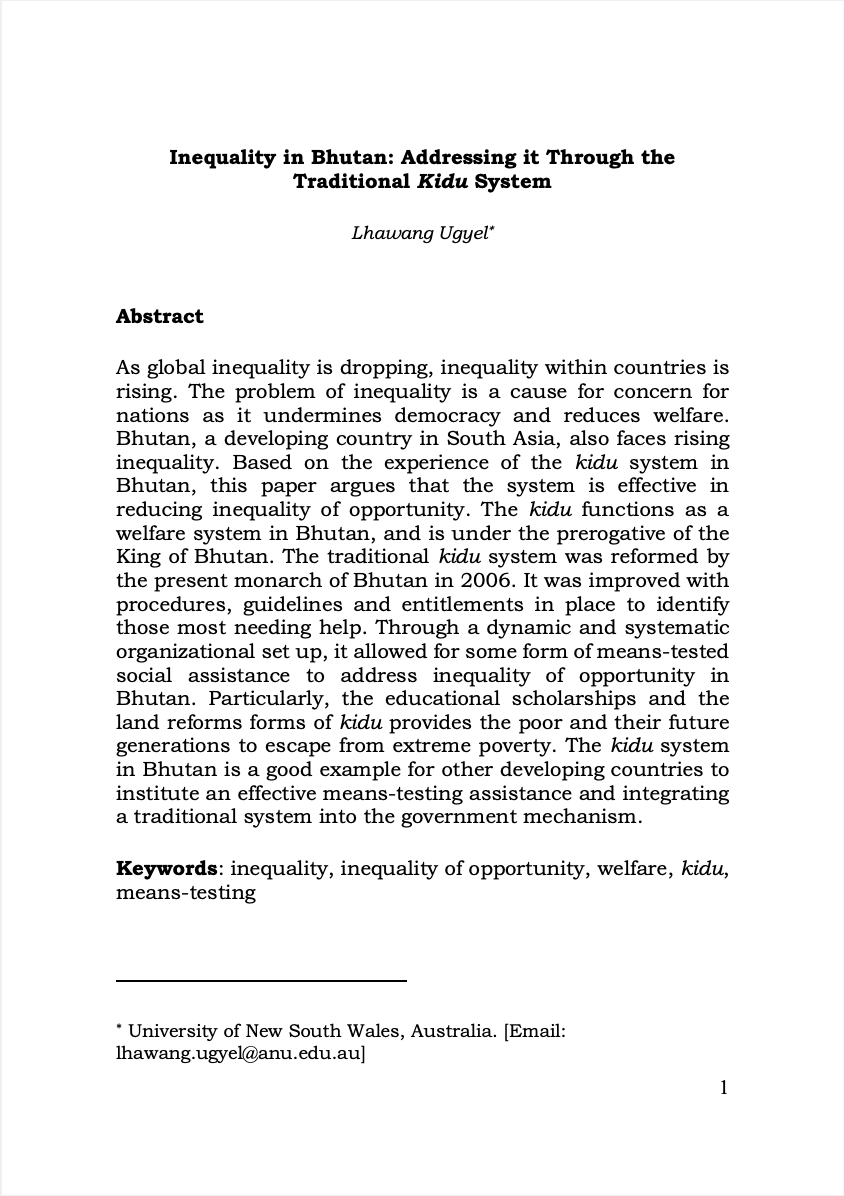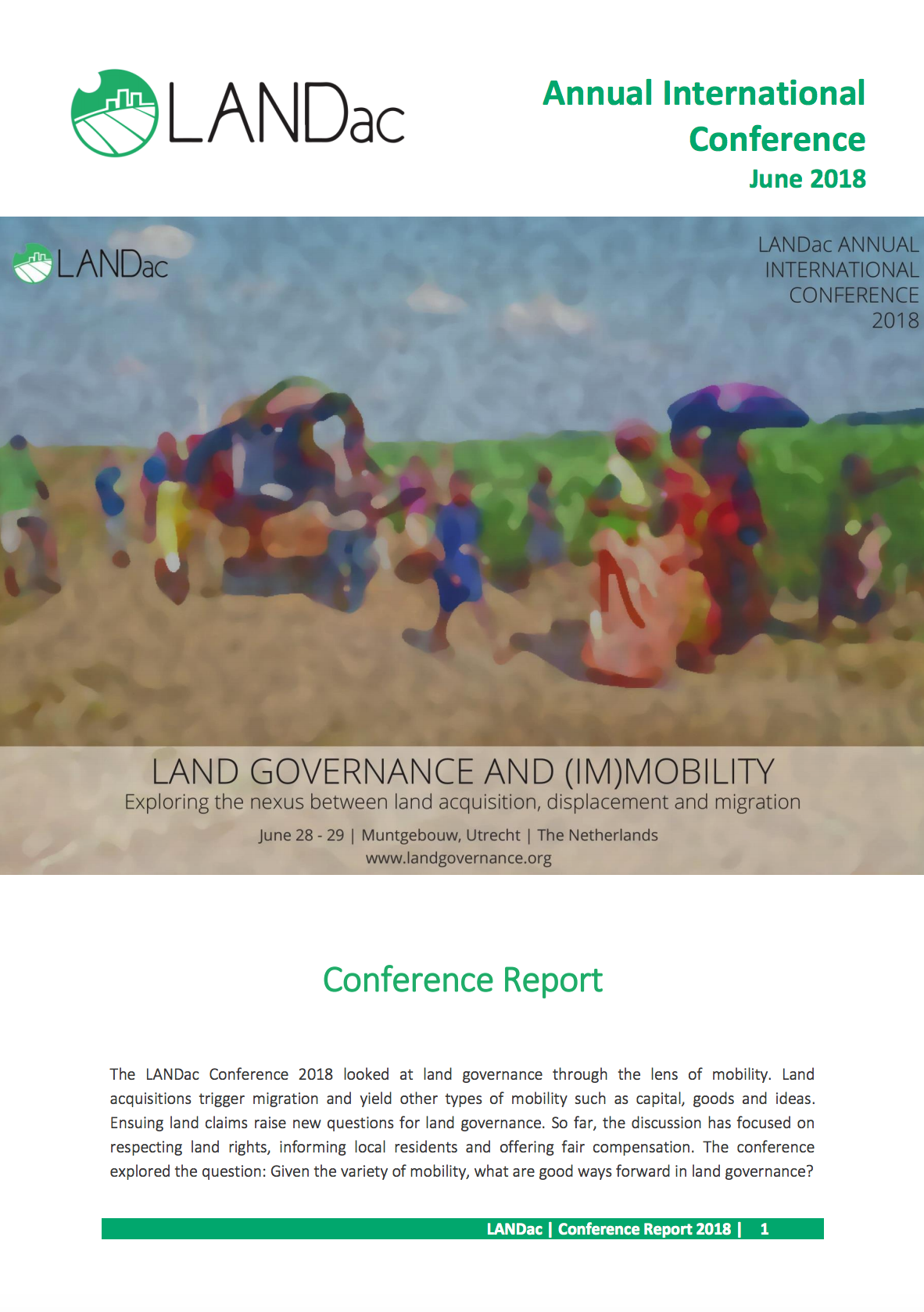Communities face off with a river that swallows lands and homes: A Case Study of River Erosion in Yusuf Matubbarer Dangi Village in North Channel Union of Faridpur District
This case study tells the story of Yusuf Matubbarer Dangi Village as a microcosm of the existential threat posed by river erosion and flooding to the country of Bangladesh. This village also encapsulates the experience of communities who are rendered landless when floods swallow up their properties and who then have to wait for new land to emerge from the river in the simultaneous erosion and accretion of land when the river swells.

